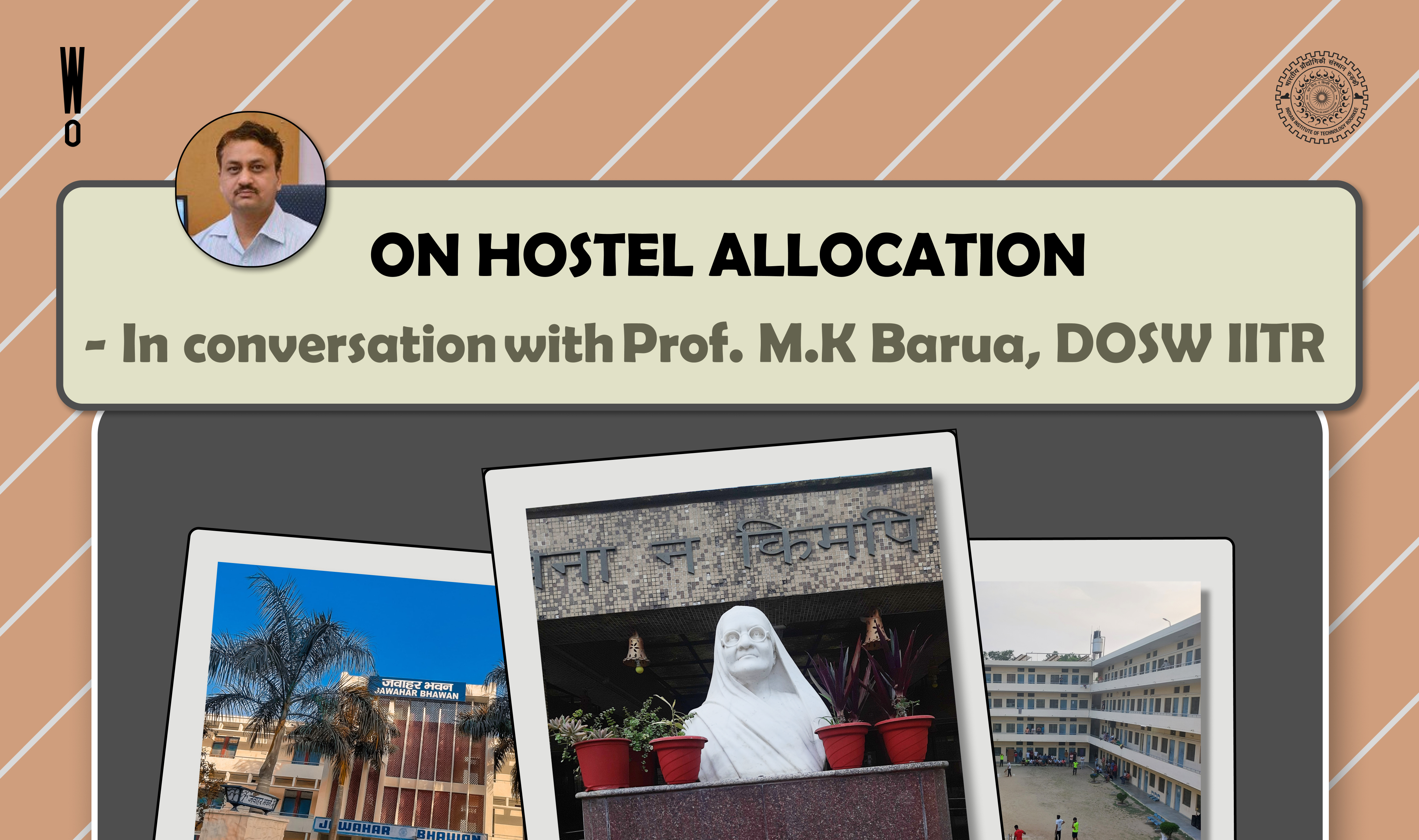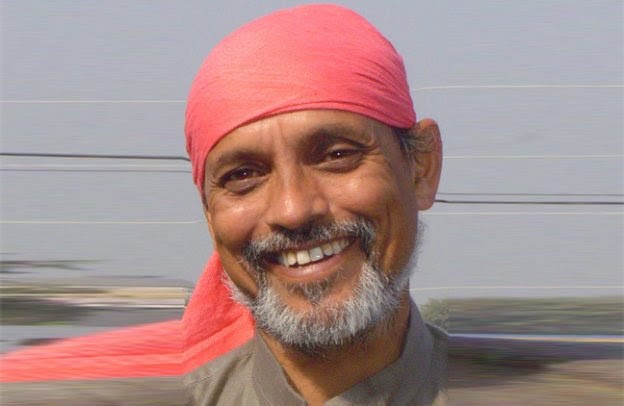

Body of IITR

*Dr. Anil Prakash Joshi secured a master’s degree in botany and a doctoral degree in ecology. He started his career as a member of faculty at the Kotdwar Government PG College but resigned from the position in 1979 and founded Himalayan Environmental Studies and Conservation Organization (HESCO), a nongovernmental organization. Under the aegis of HESCO, Joshi promoted research and development of new environment-friendly technologies for the agricultural sector, tapping the local resources. His emphasis has been on inclusive growth of community by economy and ecology both. The Uttarakhand State Government has adopted his concept of Gross Environmental Product (GEP). He is also a recipient of the coveted Padma Shree and Padma Bhushan awards as well. Dr. Anil Prakash Joshi gave an institute lecture on 12th February, Watchout! interviewed him to find out more about his diverse social initiatives and the motivation behind them. *
WO: You once had a job as a researcher, which is considered stable by many. You left that job, and established HESCO. What drove you to take such a big step?
Dr. Anil Joshi: I never really had any inspiration per se. The main driving force was when I saw that the deprived in villages never had what everyone in cities had. I felt that being a teacher, I couldn’t be of much help to the society. A better way to help would be to set an example for the poor and deprived. It was my compassion for the underprivileged and my will to help that drove me, not inspiration. The people in villages are rich in resources but still poor. Those who do not have anything to do with the production of these resources grow rich. The managers are more fulfilled than the producers. We aim to help these producers, by boosting a local resource based economy. When I was still teaching, my PhD and MSc students were my major resources, who helped me with this. As time went on, there came a point when I was forced to pick. I could either teach or help the rural areas. I decided on the latter.
WO: You are the founder of HESCO. Can you tell us more about the organisation and its workings?
Dr. Anil Joshi: My students, in the early 80s, couldn’t find a platform to justify their works in the rural areas, such that people could identify them with it. That was when the foundation of HESCO was put up. In those times, there was no culture for NGOs, rather we were just some organised people, who identified ourselves as this group, Himalayan Environmental Studies and Conservation Organization, among the people. The group never had a mandatory thought in the beginning. The mandate was decided as the community priority. This is why we make all sorts of things to help them, be it technology, garments, construction, food processing or fighting against the government. Anything the community requires, we provide them with it.
WO: Talking about the institute, during your talk, you asked us to invite Open Scholars. Can you elaborate on that?
Dr. Anil Joshi: In our country, education has become synonymous with learning the alphabet and cracking JEE, which is not a good mindset to have. There are people who are educated by the environment itself. They develop their own education. They are very important, especially now when we’re losing the ecosystem at a very fast rate. I believe It is the people who’ve been close to the environment, suffered along with it, who can provide us with the best solutions. Thus we propose an Open Scholars program, where institutions such as IITs can invite such people to learn and share their ideas in a suitable environment. Such a program where the poorest of the poor, who never had the opportunity to grow, also have a chance to learn and share their experiences. This may not be like the regular education at IIT, but somewhat like a partnership between them and the institute. The students have to be the ones talking to the authorities. I will be the one to connect you with the people actually interested. Get them to meet your professors, get them to learn. We will be able to give a chance to the deprived and underprivileged, to put up their thoughts. What I aim is to promote the innovations that they think of, but are not given an outlet for promotion or scientific validation.
WO: You talked about urbanization curbing the nation’s identity, how ecological development and urbanization cannot go hand in hand. However, removing research that doesn’t focus on the rural people won’t allow the benefits of that research to be enjoyed by the urban people either. How would you go about that?
Dr. Anil Joshi: See, the word urbanization itself is something people don’t know the meaning of. Urbanization itself is where has an opportunity to fulfill most of their needs, along with a chance to contribute to the system. Today, this has become the biggest consumer of air, soil and water. However, it has given the environment nothing in return. The urban people are only contributing hazardous waste to the system. Urbanization, in our country, has just become erecting buildings and stuff. This model can never bring sustainability. Sustainability can only be obtained when we regularly produce and consume. Urban parts only do secondary processing. Thus they are unaware of the production processes. This leads to a situation where the urban people where they consume continuously, unaware of the harm they might be putting on the environment they live in. This has led to a large ecological disparity complementing the economic disparity already existing between the cities and the villages. The floods affect the villages more than the cities, even though the main cause is the environmental destruction, caused by urbanization. There’s no balance. We have to go for a balance between the urban and rural areas. The villages, however, cannot function without the cities either, many practices, already undertaken by the villagers, are upgraded by what cities have to offer. Toilets, pressure cookers, tractor, many innovations provided by the cities have helped the villages grow with faster and more efficient techniques. Only if both villages and cities go hand in hand, can we be effective in the sustainable growth of the whole nation.